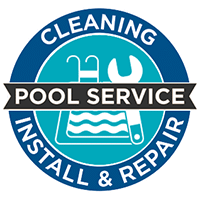Salt Water Pool Conversion: How To Convert To A Saltwater Pool

You may have a chlorine pool at your home. You may also have heard about all the benefits associated with a salt water pool. It is possible to convert your chlorine pool into a salt water pool. Salt water pool conversion is growing in popularity.
Salt Water Pool
Salt water pool conversion requires having a salt cell installed. This cell makes its own chlorine by creating an electrical reaction between the electrode and the salt. It doesn’t produce chloramines that tend to be a problem with certain people. Those who swim in a salt water pool will never taste salt. This type of pool doesn’t require much salt. It uses about as much salt as is found in a human tear.
Why Switch To A Salt Water Pool?
There are various salt water pool benefits that make people with a chlorine pool want to switch.
- Sensitivity Issues – Many people have a sensitivity to chemicals. When someone is frequently exposed to chemicals, even if they have no health issues, they may develop a type of allergy and become sensitive to it.
- Chloramines – This is when people believe there is a pool smell in a pool because it has too much chlorine. The reality is the opposite of why there is a pool smell. Chloramines can build up over a period of time. It minimizes the chlorine’s ability to fight germs. When this happens, it can cause health issues for people. They may experience irritation of their eyes, skin as well as lungs and more.
Salt Water Pool Costs
The costs for a salt water system can be as little as a few hundred dollars up to $2,500. The variation of the prices is usually based on the size of the pool as well as any required extra features. Costs associated with converting to a Salt water system are not the only things to consider.
- Replacement Cells – The salt water cells will have to be replaced every 3 to 5 years.
- Pool Size – A salt water system works best based on the amount of water in a pool. A pool owner must determine what system will work with the size of their pool.
Balance Phosphate Levels
You don’t need to balance your salt pool’s phosphate levels, but it is highly recommended. Phosphates can act as a glue for contaminants that will probably build up within the pool’s salt cell. The average pool testing kit may not include a phosphate tester, but phosphate testers are inexpensive.
Salt Chlorine Generator
Each salt chlorine generator is unique. Each of them has different sets of installation instructions. Once a chlorine generator is installed, it is time to add pool salt to the pool’s water. The amount of salt required will be determined by the size of the pool. A pool’s salt level will need to be tested by a pool salt test strip. The amount of salt may need to be adjusted until the right amount is reached.
Shock Pool
Prior to starting a salt chlorine generator, it is recommended a pool is shocked with a cal-hypo. Once this is done, it is important to wait until the salt chlorine goes to an ideal level. When this has been achieved, it is okay to turn on the salt chlorination system. The pool should then be tested once again after 24 hours.
Converting a chlorine pool into a salt water pool should be done by professionals. Contact Clear Water Pools of Atlanta if you are interested in converting your pool to saltwater. It is important to make certain a pool’s water is properly prepared before a salt cell generator is activated. With proper maintenance, you may find this conversion an excellent decision as you experience all the salt water pool benefits.




